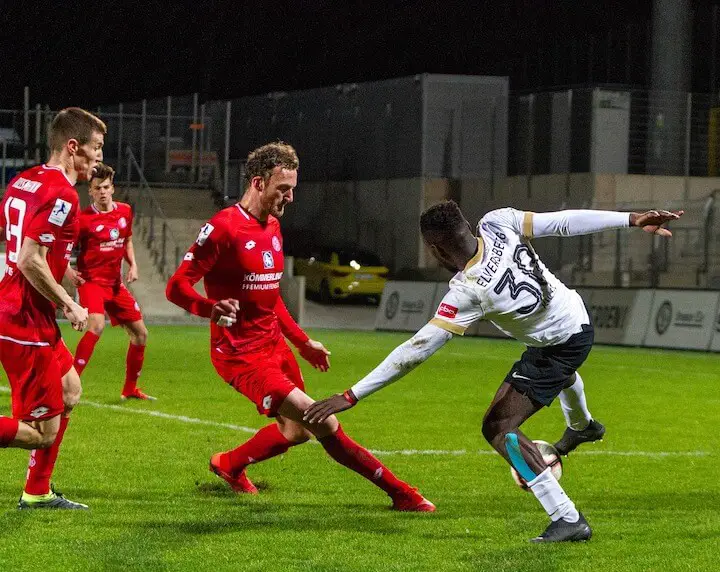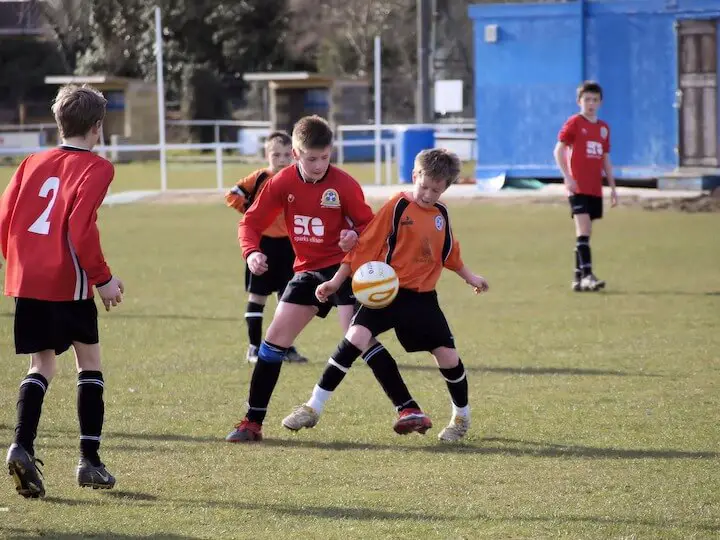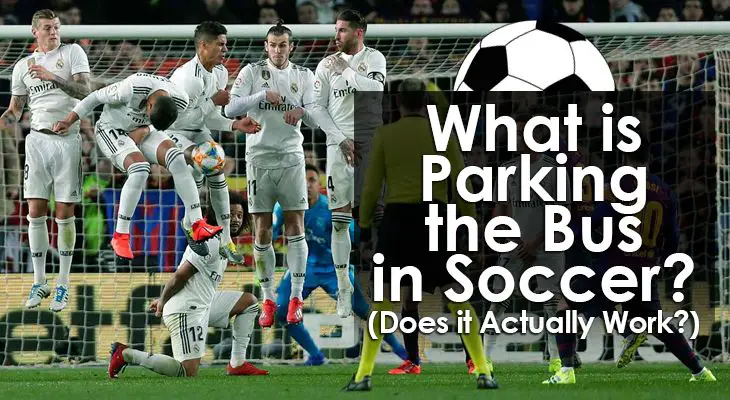What is Parking the Bus in Soccer? (Does it Actually Work?)
“Tottenham might as well have put the team bus in front of their goal” - Jose Mourinho, Chelsea vs Tottenham; September 19, 2004.
Jose Mourinho was far from pleased with the style of defensive soccer the Spurs had played after their encounter at Stamford Bridge all those years ago.
This famous quote from him after the game birthed the term “parking the bus”.
Jose himself refused to take credit for coining the term, suggesting that it was a phrase commonly used back in his home country Portugal.
Regardless, it became a lot more popular after that quote.
Here's everything you need to know:
What Does "Parking the Bus" Mean?
A less fancy soccer term for this style of soccer is “playing a low-block.”
With this approach, players defend very deep within their half - especially within the defensive third, leaving very little space for the opposition to run into or thread passes through.
This type of defense involves very little movement on the part of the defensive players, especially compared to tactics that involve high pressing where players have to do a lot of running.
Teams that park the bus expect to have much less possession of the ball compared to the opponent.
The tactic is a very reactive one, allowing the opponent to do whatever they want with the ball as long as they cannot penetrate the low block.
It's generally seen as a “boring” tactic, but it can be very effective.

Why Do Teams Park The Bus?
There are a few reasons why a team would park the bus against an opponent.
Let’s talk about a couple of them.
1. Playing Against A Superior Team
It's not uncommon to see teams parking the bus when playing against one of the best teams in their league / competition.
The rationale here is that if they can manage to shut the opponent out and avoid conceding a goal, then they might get an opportunity to break and score on the counter or with a set-piece.
Or the team could simply be seeking a draw, if they deem that to be a good result.
In those cases, they give minimal effort to attacking play.
Instead, they focus on their defensive shape and stifling the opponent for 90 minutes.
2. Holding On To A Lead
When a team is up by a lone goal -- especially playing against a relatively strong team -- then the manager might be inclined to encourage the players to "park the bus" and hold on to the lead.
This is particularly common when the game is coming to a close, as the risk-reward levels of continuing attacking play are low.
At that stage of the game, it's more important to stop the opposition from scoring and leveling the game than trying to score another goal, especially if a higher goal difference is not crucial.
3. Quality Of Players
This factor could apply in two ways.
The first is a situation where the quality of players available to the team in defense is low in comparison to other areas of the team.
In that situation, the manager might decide to give the team a better chance of conceding less by getting more players involved in defensive phases of play.
On the other hand, the reverse could also be the case...
The second situation is when a team that has better quality of players in defense compared to other areas of the pitch.
For a team that has better quality of players in defense compared to other areas of the pitch, the manager might decide to play to their strengths and focus on keeping the opposition out, relying on “smash and grab” opportunities to score.
4. Sending Off
When a team gets a red card, they’re at a disadvantage because more players on the field gives the opponent a better chance of keeping possession and subsequently getting scoring chances.
On that note, the manager might decide that parking the bus is a good idea, especially if the team isn't chasing the game and still has a chance to get at least a point.
In these cases, it's common to see managers make defensive substitutions a player gets sent off to cover for the deficit in numbers.
5. Competition Rules
A practical example of how competition rules can make a team park the bus is the UEFA Champions League.
Although the rules have now changed, away goals used to count more than home goals did in the competition.
For example, if a team draws a game 1-1 away from home, and then gets a 0-0 result at home in the return leg, their away goal in the first leg would be enough to send them to the next round of the competition.
This made teams extra cautious when playing at home, trying harder not to concede a goal than they would if they were playing away from home.
For the smaller teams going up against stronger teams, it became a common theme to park the bus and hope to score an away goal in the return leg.

So, Does Parking The Bus Work?
In one word, yes.
A famous example is the UEFA Champions League game between Celtic and Barcelona in 2012.
Barcelona had 84% possession and took 25 shots compared to Celtic’s modest 5.
Yet somehow, Celtic won the game 2-1.
The manager recognized the fact that Barcelona was a far superior team and did not try to contest possession with them.
Instead, he focused on setting the team up to be defensively compact, reducing the quality of chances that Barcelona got.
The final piece of the puzzle was a bit of luck for his team to take the few chances that they got.
Conclusion
Parking the bus may not be the most enjoyable style of playing soccer, but it has proven to be effective in many situations.
So much that even Jose Mourinho who “coined” the term has been accused of playing that style of soccer many times in his hugely successful managerial career.
It stresses the point that “if it works, then it’s good enough”!
Further Reading: 5 Soccer Tactics All Coaches Must Know

